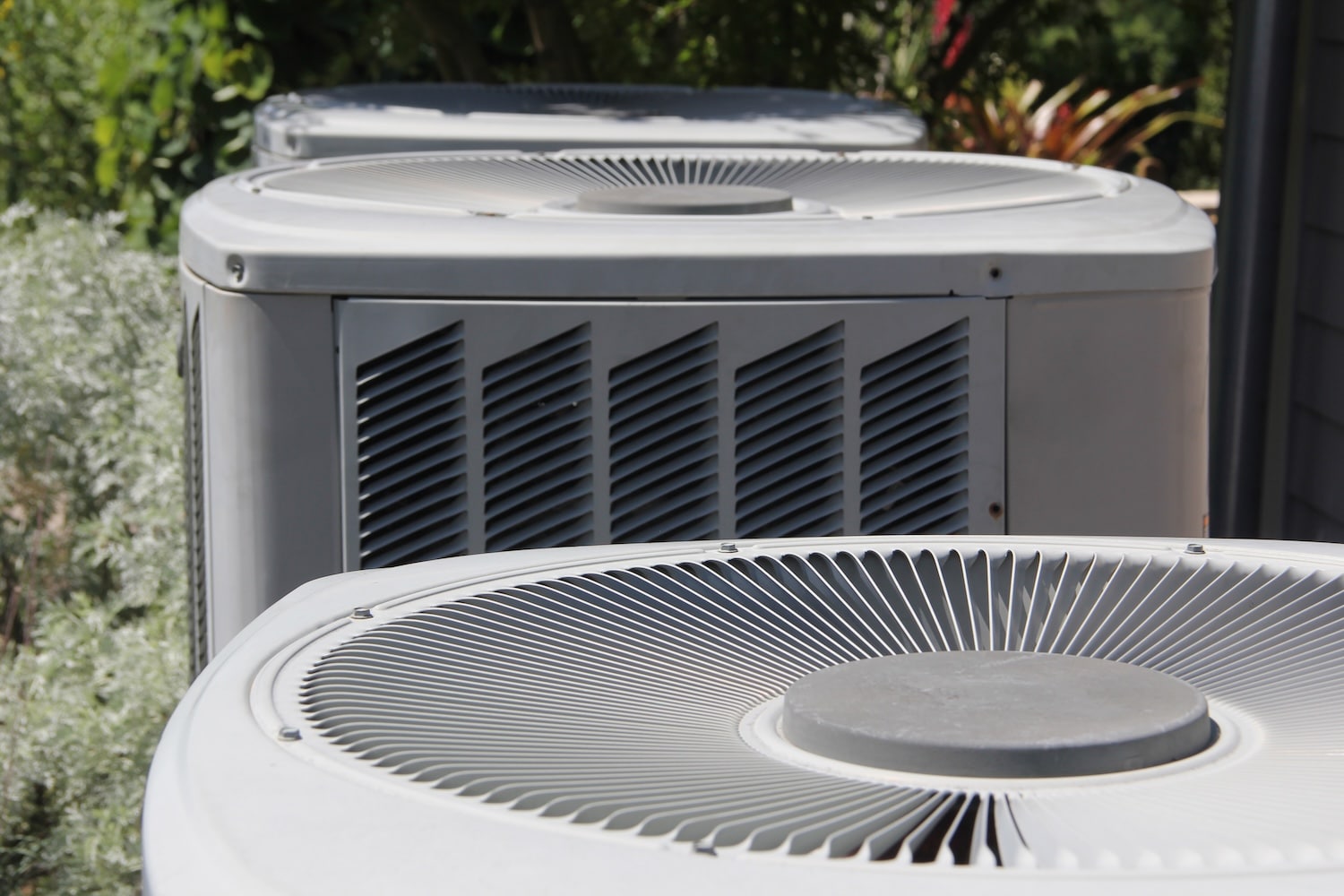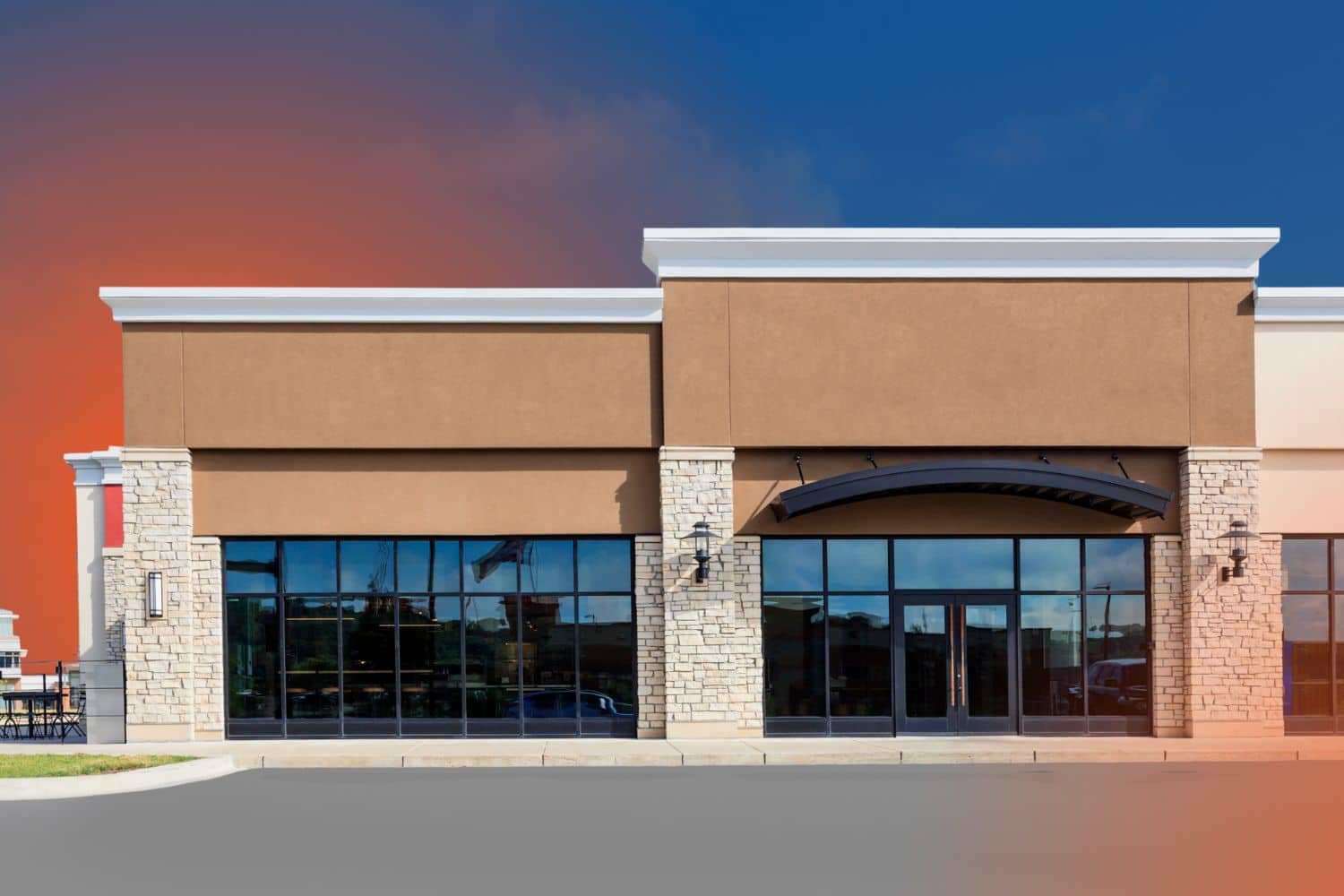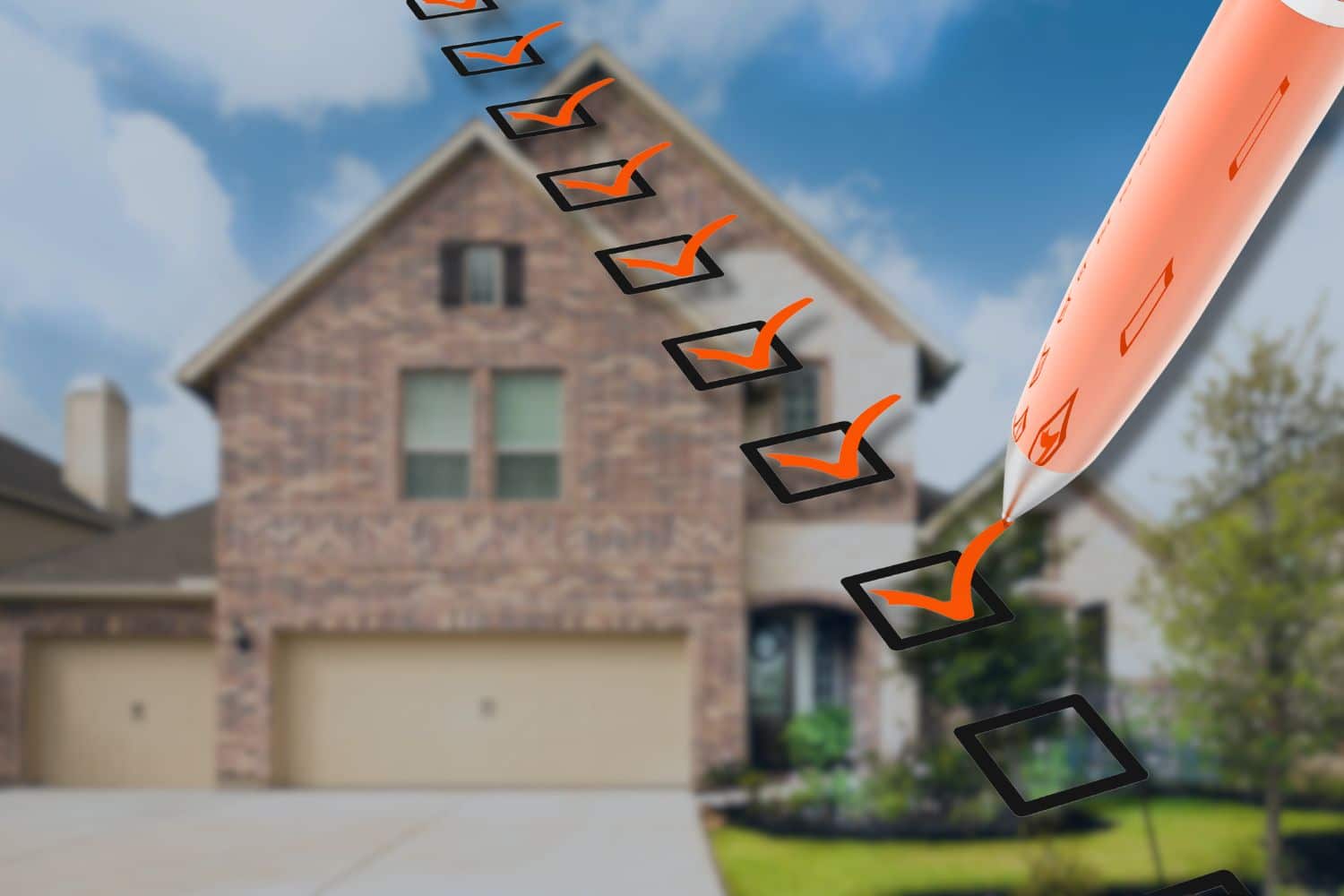Whether you’re buying a home, trying to sell one, or just staying on top of your current system, understanding AC lifespan can help you avoid big expenses and uncomfortable surprises. So, how long should you expect your AC unit to last?
In Texas, where ACs work pretty hard most of the year, that’s not a bill most people want to be surprised by. This guide breaks down how long an AC system usually lasts, what shortens or extends that time, and what to watch for at different stages of homeownership.
Table of Contents
ToggleWhat’s the Average Lifespan of an AC Unit?
Most air conditioning systems last around 10 to 15 years, but that’s just a ballpark. In warmer climates, many systems start showing wear earlier due to heavy seasonal use and high humidity.
Several things can shorten or extend the life of your system:
- Usage: The more you run it, the more wear it gets.
- Climate: Hotter regions with more humidity wear units out faster.
- Installation quality: A poorly installed system may never run efficiently.
- Maintenance: Skipping tune-ups or letting filters clog cuts years off your system’s life.
- System type: Traditional central air units tend to last longer than portable or window models. Ductless systems (mini-splits) often land somewhere in the middle.
Older systems are often oversized and inefficient, which can drive up your energy bill even if the unit is still functional. Also, high humidity and neglected maintenance can reduce your AC unit’s lifespan to less than 10 years.
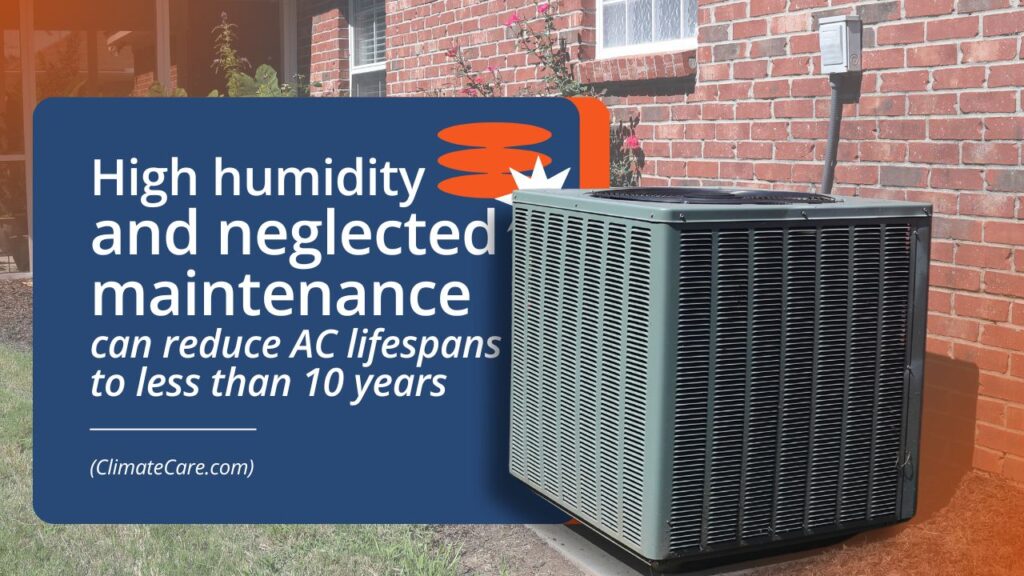
Signs Your AC Unit Might Be Near the End
If your system is approaching 10 years or more, start paying close attention to how it performs. These signs often mean your AC is struggling and may be nearing the end of its useful life:
- The house feels unevenly cooled or stays warm even when the unit is running.
- You’ve needed two or more repairs in the last year.
- Your energy bill keeps creeping up with no clear reason.
- The unit makes loud or unusual noises, like banging or buzzing.
- There’s visible rust, leaking refrigerant, or water near the system.
- It starts short cycling, which means it turns off and on rapidly without fully cooling.
During a home inspection, AC issues are often found visually. Inspectors might note coil corrosion, dirty filters, damaged ductwork, or loud startup noises. These observations don’t always mean a system is failing, but they’re red flags that deserve follow-up.
What Buyers Should Know About Older AC Systems
If you’re buying a home with an older unit, don’t panic. But do ask the right questions.
HVAC systems are one of the most expensive parts of a home to replace. When the inspection reveals an older unit, especially one over 10 years, it doesn’t always mean you need to walk away. But it does mean you should ask:
- How old is the unit, and is it still under warranty?
- Has it been serviced yearly?
- Has it had any major repairs or refrigerant leaks?
- Is it cooling the home evenly and efficiently?
You can also use HVAC condition to your advantage when negotiating. If the unit is aging or shows signs of trouble, your agent might help you request a repair credit or a home warranty from the seller. You’ll still want to follow up with an HVAC technician for a more detailed system check before closing.
What Sellers Should Do Before Listing a Home
If your AC is older but still functional, you might be wondering whether it’s worth replacing before putting your house on the market. In many cases, the answer is no.
Instead, your best bet is to document and prepare:
- Schedule a professional cleaning and tune-up before the home goes live.
- Keep receipts and service logs from recent maintenance.
- Replace the air filter and trim any vegetation near the outdoor unit.
- Make sure the thermostat works properly and shows the correct temperature.
Buyers are more likely to feel confident about your system if they can see that it’s been well cared for.
If an inspector sees dust buildup, blocked airflow, or signs of deferred maintenance, they might wonder about other parts of the home, too.
How Homeowners Can Extend the Life of Their AC
A well-maintained AC unit can last longer and run more efficiently. You don’t need to be an expert to take care of it, either. Here are simple steps that make a big difference:
- Change your air filter every 30 to 90 days. Dirty filters restrict airflow and force your system to work harder.
- Schedule yearly HVAC tune-ups in the spring or early summer. A technician can check refrigerant levels, clean coils, and catch problems early.
- Keep the area around the outdoor unit clear. Trim back plants and clean off leaves, dirt, or grass clippings.
- Install a smart thermostat to help reduce wear and keep temperatures more consistent.
- Check your attic insulation. Poor insulation makes the AC work harder to cool the house.
These steps don’t just improve comfort. They also help lower your utility bills and delay the need for expensive repairs or replacements.
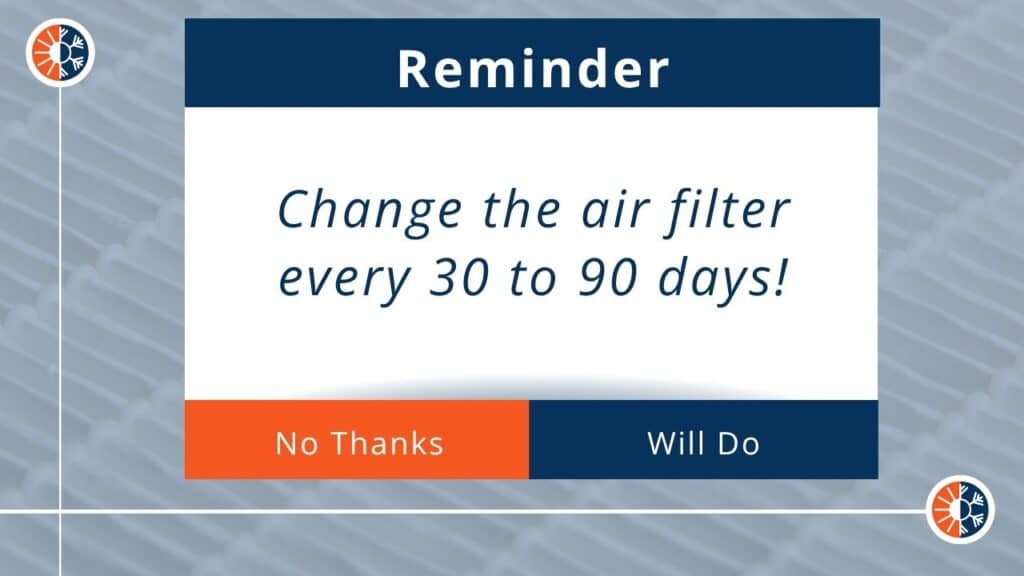
Other Recommended Maintenance
Your AC system doesn’t operate in a vacuum. A few other systems in your home directly affect how well it runs.
- Ductwork: Leaky or uninsulated ducts can reduce your AC’s efficiency by up to 30 percent.
- Insulation and ventilation: A poorly insulated attic traps heat and makes your system work harder.
- Humidity control: High humidity causes systems to run longer, leading to faster wear. Use dehumidifiers or add attic ventilation if needed.
- Drain lines: Make sure condensate lines are clear to prevent leaks or overflow issues.
Home inspectors often catch signs of bigger problems here, even when the AC itself seems fine. Fixing airflow or insulation issues can take stress off your system and give it more years of useful life.
When to Call a Professional
You don’t always need to call a pro, but here’s when it’s smart to get help:
- The system is 10 to 15 years old and showing signs of failure.
- You notice a burning smell, ice on the coils, or water pooling around the unit.
- Cooling feels weak even when the thermostat is set correctly.
- Your energy bills jump without a change in usage.
- You’re buying a home and need a more detailed HVAC evaluation.
If your home inspection report includes AC concerns, don’t ignore them. At Centex, we’ll clearly flag signs that need follow-up so you can get ahead of any issues before they become major expenses.
Conclusion
So, how long should an AC unit last? On average, 10 to 15 years…but that depends on how it’s used, where you live, and how well it’s maintained.
If you’re buying, selling, or simply maintaining your home, your AC system plays a big role in comfort, costs, and long-term value. Knowing its condition now can help you avoid costly surprises later.
Need a trusted inspection in Central Texas? Centex Inspection Services provides a full evaluation of your home’s major systems, including the HVAC, so you know exactly what you’re working with before it breaks.

